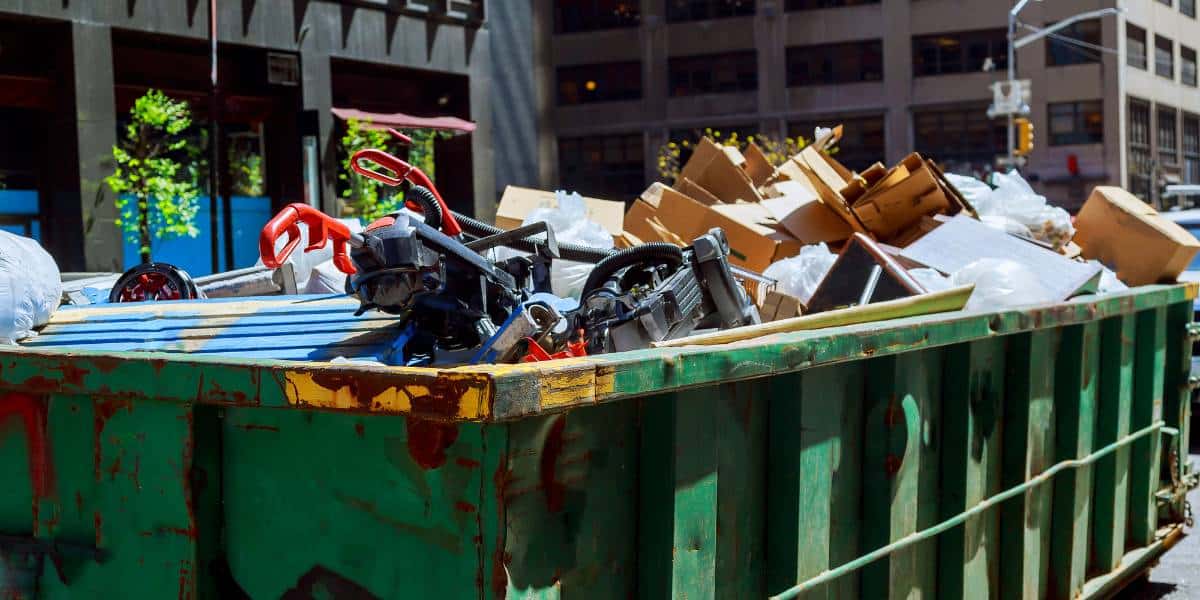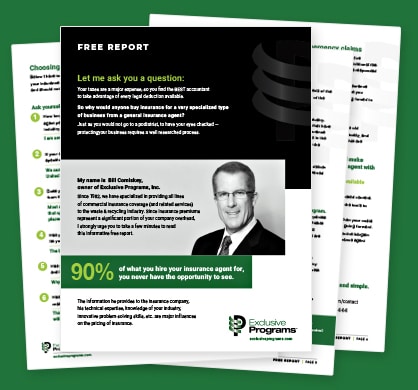Business insurance protects business owners from accidental losses. Workers’ compensation is one of the policies under business insurance any business is required to have as a requirement by the federal government. In Florida, The Division of Investigative and Forensic Services is mandated to conduct job site investigations to determine compliance and carry out any workers’ compensation fraud investigations.
Penalties For Not Having Workers’ Compensation Insurance in Florida?

- Fine: A minimum of $1000 or double the premiums the employer should have paid during the period they went uninsured. The greater amount is chosen in this scenario.
- Stop-work Orders: All operations are immediately halted until the business is compliant.
- Expensive Lawsuits: Any workman injury lawsuit is paid off-pocket by the business. This includes both compensation costs as well as legal fees.
Types of Business Insurance Available for Sanitation Businesses in Florida
The waste and recycling industry has risks, and each type of business insurance has a risk to mitigate. The common business insurance coverages in Florida include:
General Liability Insurance
Florida commercial general liability insurance covers;
- Damages customer property
- Any customer injury at the premises
- Advertising-related injuries
Property Insurance
This policy covers the value of the business premise’s structure and its contents. The cover also extends to supplies and inventory against damage such as fire, theft, and other causes of loss. This insurance coverage comes in handy in Florida since it is prone to harsh weather conditions such as floods and hurricanes.
Workers’ Compensation Insurance

Disability benefits include the wages lost while an employee recuperates from an occupational injury or illness.
Medical expenses: Covers for immediate medical expenses such as ER visits, ambulance rides, surgical procedures, ongoing medications, and other medical bills
Fatal injury benefits: When a workplace injury is fatal, the deceased’s beneficiaries claim expenses and other benefits that support the family in filling in for the departed provider.
Employee Lawsuits: An employer’s liability insurance is included in the workers’ compensation insurance to protect employers from workplace injury lawsuits. In case of a claim, the policy caters for:
- Legal fees
- Court fees
- Judgment settlements
Commercial Auto Insurance
This vehicle liability coverage covers all damages caused by any vehicle contracted by a waste management company. It includes any physical damage that occurs to the vehicles.
Specialty Insurance
Specialty coverage covers businesses that may be out of the ordinary. It covers aspects that could be more experienced in other businesses and inclusive in other types of insurance. The waste and recycling industry faces risks involving the handling, transporting, and disposing of waste. The specialty insurance covers:
- Pollution liability
- Professional liability
- First party pollution
- Pollution for non-owned disposal sites
The Risks Faced by Sanitation Businesses and How Insurance Can Help
The waste handling business is faced with potential safety hazards due to the nature of the equipment and waste handled. Some of the risks include
- Exposure to hazardous biological and chemical materials such as industrial waste, rotting animals, food waste, broken glass, and hypodermic needles.
- Moving machinery such as conveyor belts and compactors.
- Airborne contaminants such as biohazards, asbestos, and silica.
- Transportation hazards due to the weight and shape of the waste
- Exposure to extreme weather that frequents Florida from June to November.
An insurance underwriter helps you to get the best insurance policy that covers your company from any possible risk while cutting costs. We help in:
- Assessing your business needs and possible risks
- Budget the right insurance coverage for your sanitation business
- Researching providers and comparing quotes for business insurance
- Protecting your sanitation business with the right business insurance coverage
Bottomline
The nature of the waste and recycling industry needs an insurance underwriter who understands its risks. Exclusive Programs have been offering specialized insurance in Florida for over 25 years. We are interested in the waste and recycling business, as do you. Contact us for a consultation.


